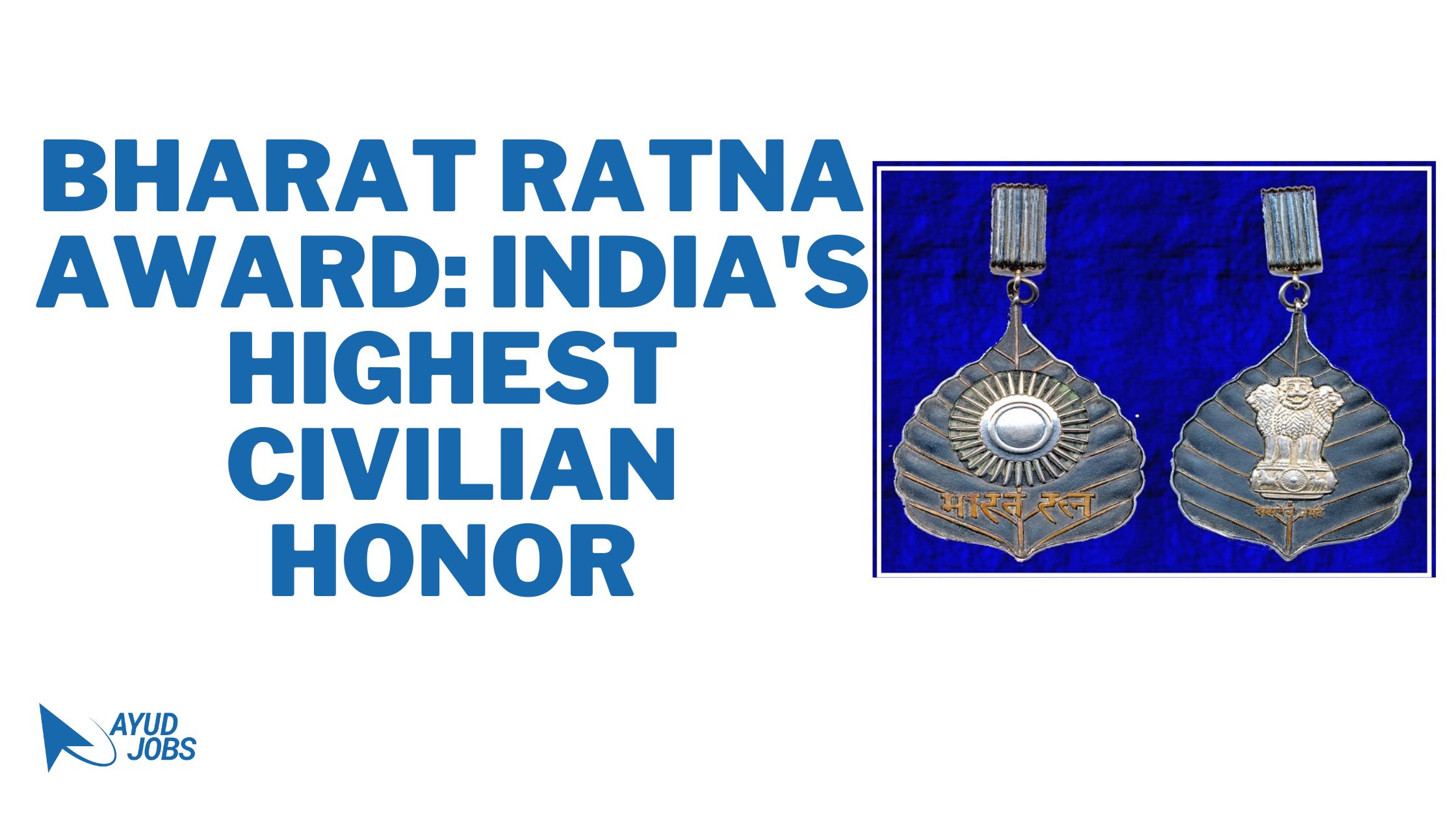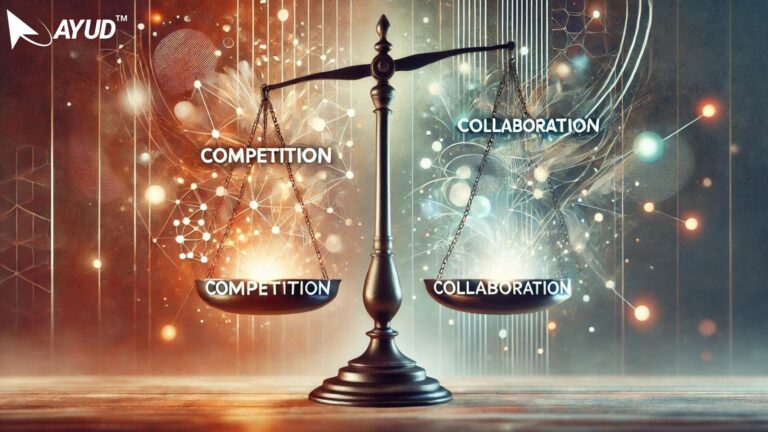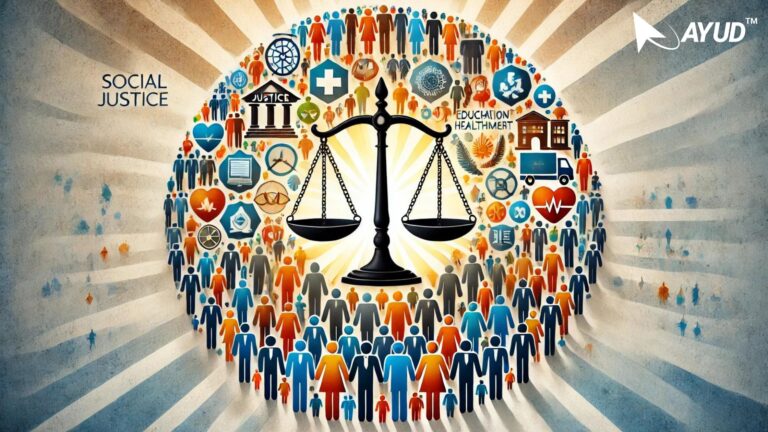Bharat Ratna Award: India’s Highest Civilian Honor
Bharat Ratna Award: India’s Highest Civilian Honor
Introduction:
The Bharat Ratna is one of India’s most prestigious honors, recognizing exceptional contributions to the nation in various fields. In this blog, we’ll explore what the Bharat Ratna award is and how individuals can earn this esteemed recognition. Whether you’re a student or someone curious about this honor, we’ll break it down for you in simple terms.
What is the Bharat Ratna?
The Bharat Ratna is India’s highest civilian award, equivalent to the Nobel Prize. It was instituted in 1954, recognizing outstanding achievements in various fields, such as art, science, literature, public service, and sports. The term “Bharat Ratna” translates to “Jewel of India” in English, and that’s precisely what the award represents – a jewel that symbolizes an individual’s invaluable contribution to the nation.
Who Can Receive the Bharat Ratna?
- Citizens of India: To be eligible for the Bharat Ratna, an individual must be an Indian citizen. This means that foreign nationals cannot receive this honor.
- Age and Occupation: There are no specific age or occupation restrictions for the Bharat Ratna. Anyone, regardless of their profession, can be considered for the award.
- Exceptional Achievements: To earn the Bharat Ratna, a person must have made exceptional contributions that have had a significant impact on the nation. This could include achievements in fields like science, art, literature, public service, or sports.
The Nomination Process:
The process of nominating someone for the Bharat Ratna is relatively straightforward:
- Recommendation: Nominations can be made by the President of India, the Prime Minister, or any person who feels that an individual has made a notable contribution to the country.
- Review Committee: A committee reviews the nominations and makes recommendations to the President. This committee typically includes the Prime Minister, the Chief Justice of India, the Speaker of the Lok Sabha, the Leader of the Opposition in the Lok Sabha, and the Chief Justice of the Delhi High Court.
- President’s Approval: The final decision rests with the President of India, who has the authority to confer the Bharat Ratna upon deserving individuals.
Notable Bharat Ratna Awardees:
Over the years, numerous distinguished personalities have received the Bharat Ratna, including Mahatma Gandhi, Jawaharlal Nehru, Mother Teresa, Dr. APJ Abdul Kalam, Sachin Tendulkar, and Lata Mangeshkar, among others. Their contributions have left an indelible mark on India’s history and society.
Conclusion:
In conclusion, the Bharat Ratna is India’s most prestigious civilian award, recognizing extraordinary contributions to the nation. Any Indian citizen, regardless of age or profession, can aspire to receive this honor by making outstanding achievements that benefit India and its people. So, whether you’re a student dreaming of greatness or simply curious about this award, remember that the Bharat Ratna represents the highest level of recognition for those who have truly shone as jewels of India.
Certainly, let’s delve deeper into some of the notable recipients of the Bharat Ratna award. These individuals have made outstanding contributions to India and have left an indelible mark on various fields.
Here are a few prominent Bharat Ratna awardees and their achievements:
- Mahatma Gandhi (1948): Mahatma Gandhi, often referred to as the “Father of the Nation,” played a pivotal role in India’s struggle for independence from British colonial rule. His philosophy of non-violence (Ahimsa) and civil disobedience inspired millions and led to India’s eventual freedom in 1947. Gandhi’s life and teachings continue to inspire people worldwide.
- Jawaharlal Nehru (1955): Jawaharlal Nehru was India’s first Prime Minister and a key figure in the nation’s post-independence development. He was a visionary leader who played a crucial role in shaping India’s democracy and institutions. His commitment to secularism and modernization left a lasting impact on the country.
- Mother Teresa (1980): Mother Teresa, known for her selfless service to the destitute, was awarded the Bharat Ratna for her humanitarian work. She founded the Missionaries of Charity, a global organization dedicated to caring for the sick and needy. Her dedication to the marginalized and vulnerable earned her worldwide recognition.
- Dr. A.P.J. Abdul Kalam (1997): Dr. A.P.J. Abdul Kalam, also known as the “People’s President,” was a renowned scientist and the 11th President of India. He made significant contributions to India’s space and missile programs, particularly the development of ballistic missile technology. His deep-rooted connection with students and his inspirational leadership made him a beloved figure in India.
- Sachin Tendulkar (2014): Sachin Tendulkar, often called the “God of Cricket,” is one of the greatest cricketers in the history of the sport. He holds numerous records and achieved numerous milestones throughout his cricketing career. Tendulkar’s dedication, consistency, and sportsmanship made him an icon in India and around the world.
- Lata Mangeshkar (2001): Lata Mangeshkar, the “Nightingale of India,” is one of the most celebrated playback singers in the history of Indian music. Her melodious voice and timeless songs have charmed generations of music enthusiasts. She has sung in multiple Indian languages and is widely regarded as a cultural icon.
- C.V. Raman (1954): Sir C.V. Raman was a renowned physicist who won the Nobel Prize in Physics in 1930 for his groundbreaking work on light scattering. His discovery, known as the “Raman Effect,” had a profound impact on the field of optics and spectroscopy. He was the first Asian and the first Indian to receive a Nobel Prize in the sciences.
- Dr. Bhimrao Ambedkar (1990): Dr. B.R. Ambedkar was a prominent jurist, social reformer, and the chief architect of the Indian Constitution. He dedicated his life to fighting against discrimination and promoting the rights of the marginalized, particularly the Dalits (formerly known as “untouchables”). His tireless efforts towards social justice and equality continue to shape India’s policies and social fabric.
- Atal Bihari Vajpayee (2015): Atal Bihari Vajpayee was a revered statesman and the 10th Prime Minister of India. His leadership during critical periods in Indian history, such as the Pokhran-II nuclear tests and the Kargil War, earned him respect and admiration. Vajpayee was known for his eloquence and his efforts to promote peace and diplomacy.
- M.S. Subbulakshmi (1998): M.S. Subbulakshmi was a legendary Carnatic classical vocalist. Her exceptional talent and mesmerizing performances earned her accolades not only in India but also on the global stage. She was the first Indian musician to receive the Ramon Magsaysay Award for her contributions to the arts.
- Bhagwan Das (1955): Bhagwan Das was a freedom fighter, philosopher, and social reformer. He was a prominent figure in the Indian National Congress and worked alongside Mahatma Gandhi during the independence movement. He was deeply committed to the principles of non-violence and social justice.
- Rajagopalachari (1954): Chakravarti Rajagopalachari, often referred to as Rajaji, was a freedom fighter, statesman, and writer. He was the last Governor-General of India and the first Indian to hold the position. His contributions to politics, literature, and education were highly regarded.
- Lal Bahadur Shastri (1966): Lal Bahadur Shastri served as the second Prime Minister of India and was known for his simplicity and integrity. He led India during the Indo-Pak War of 1965 and coined the famous slogan “Jai Jawan, Jai Kisan” to boost morale during the conflict.
- Nelson Mandela (1990): While not an Indian citizen, Nelson Mandela, the iconic South African anti-apartheid revolutionary and statesman, was awarded the Bharat Ratna in 1990. This was a gesture of solidarity with his struggle for justice and equality.
These Bharat Ratna recipients represent a diverse range of accomplishments and have made extraordinary contributions to India’s progress in various domains, including politics, social work, science, sports, and the arts. Their legacies continue to inspire generations and serve as a source of pride for the nation.
Join our what’s app channel for timely updates
Click here to install Ayud Jobs App from Playstore
Mastering Knowledge with GoTestIt: The Ultimate Self Evaluation Tool








